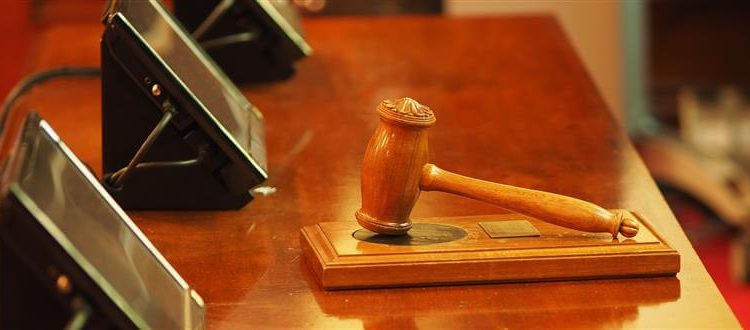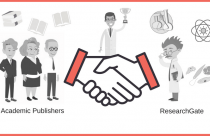ResearchGate Removes 1.7 Million Articles In Copyright Conflict

After battling publishing giants like Elsevier and Wiley, ResearchGate has finally succumbed to the allegations of copyright infringement issues. It has decided to restrict access to about 1.7 million articles online. Publishers consider this verdict as a big win in their favor. Let us learn some more details about ResearchGate and its copyright infringement issues.
About ResearchGate
ResearchGate, a for-profit organization based in Berlin, Germany was founded in 2008. The website is one of the largest academic networks, allowing users to upload and share publications, book chapters, abstracts and so on. Notably, ResearchGate receives funds via venture capitalists and science funders, including Goldman Sachs, Wellcome Trust charity, and Bill Gates himself. However, the site recently came under heavy scrutiny due to copyright infringement and breach of the Coalition for Responsible Sharing (CRS). A recent study exemplified the magnitude of its infringement. It was seen that 201/500 randomly picked journal articles were in violation of publisher’s copyright.
Allegations on ResearchGate
In September, the International Association of Scientific, Technical and Medical (STM) Publishers formally expressed concerns about the ongoing, unauthorized article-sharing policy. They expressed their concerns in a letter and sent it to ResearchGate. The letter requested ResearchGate to implement an automated regulation system for article copyright allocation. This would delineate public/private sharing seamlessly. ResearchGate, however, rejected the suggestion. Instead, it offered an alternative option for publisher-implemented formal notice provision to their company, termed “takedown notices”. Accordingly, a group of five publishers called the Coalition for Responsible Sharing (including ACS, Elsevier, Brill, Wiley and Wolters Kluwer) were to send millions of takedown notices.
Since approximately 7 million copyrighted articles were freely available on ResearchGate, the approach seemed impractical. Instead, ACS and Elsevier filed a lawsuit in Germany, asking ResearchGate to clarify its legitimacy to post such content. In the underlying site-process, internet trawling for copyrighted papers proceeded to request researchers to upload modified articles to their ResearchGate portfolio. Clearly, the action warranted that ResearchGate would lose some of its data available online or pay for damages at the court proceedings.
ResearchGate Guilty Of Copyright Infringement
In early November, yielding to the pressure from publishing giants, ResearchGate removed at least 1.7 million-copyrighted material from its website. Following months of conflict, the change ensures that papers will not be freely available online; instead, they can only be requested directly from authors. It would then be the responsibility of researchers to provide/deny access to their research article, based on its sharing policy. According to James Milne, spokesperson for the CRS, the decision to remove access to nearly 2 million articles marks a positive first step. Additionally, a private sharing network may further enhance the security model of article-sharing policies.
The dispute with ResearchGate follows a series of actions by academic publishers against several websites providing access to copyrighted articles. For instance, in 2013, Elsevier sent 2800 takedown notices to Academia.edu. Along with ACS, it jointly filed a lawsuit against Sci-Hub. The immense popularity of copyright infringement highlights a bigger problem in the lack of affordable licensing agreements for academic publications. Publishers may need to reach a “fair deal” on subscription costs and open access article models, in the near future.
Other ongoing efforts for open scholarly research include the development of the “Free the Science” initiative. This long-term vision driven by The Electrochemical Society aims to bring about a transformative change in scholarly research communication. Further efforts are also underway to develop a novel, non-profit scholarly network known as ScholarlyHub. Historian Guy Geltner heads the non-profit scholarly project in an effort to create a portal for academic publications and networking. In contrast to existing academic networks, impending projects will allow academics to own their data in a non-profit scholar-oriented community. In this way, novel approaches to scholarly communication can create a requisite shift in the existing paradigm.
What do you think about this move of ResearchGate? Do you agree with the CRS that this step is a great win towards copyright infringement? Please share your thoughts in the comments section below.







